
Kód: 05312617
Dedovshchina in the Post-Soviet Military. Hazing of Russian Army Conscripts in a Comparative Perspective
Autor Francoise Dauce, Elisabeth Sieca-Kozlowski
In contemporary armies, violence among soldiers seems to be a universal phenomenon found in both professional and drafted armies. However, the comparison of violent practices in various armies around the world allows us to identif ... celý popis
- Jazyk:
 Angličtina
Angličtina - Vazba: Brožovaná
- Počet stran: 312
Nakladatelství: ibidem-Verlag, Jessica Haunschild u Christian Schon, 2006
- Více informací o knize

Mohlo by se vám také líbit
-

Encyclopedia of Jewish Symbols
2504 Kč
Dárkový poukaz: Radost zaručena
- Darujte poukaz v libovolné hodnotě a my se postaráme o zbytek.
- Poukaz se vztahuje na celou naši nabídku.
- Elektronický poukaz vytisknete z e-mailu a můžete ihned darovat.
- Platnost poukazu je 12 měsíců od data vystavení.
Více informací o knize Dedovshchina in the Post-Soviet Military. Hazing of Russian Army Conscripts in a Comparative Perspective
Nákupem získáte 97 bodů
 Anotace knihy
Anotace knihy
In contemporary armies, violence among soldiers seems to be a universal phenomenon found in both professional and drafted armies. However, the comparison of violent practices in various armies around the world allows us to identify specific features linked to those countries'sociological, political or anthropological contexts. Hazing, for example, seems to be more violent in the armies of transitional societies (Russia, Eastern Europe, Latin America), where social tensions encountered by citizens in their daily lives are carried over to, and sometimes intensified in, the military. The comparison of Russian dedovshchina with the situa-tion in other countries makes it possible to identify universal, transitional and national characteristics of military violence. Contents: Konstantin Bannikov on the consequences of the spread throughout society of archaic violence produced by the Russian army; Anna Colin Lebedev on the perception of military violence in Russian society; Anton Oleynik on informal relationships among prisoners and conscripts; Kirill Podrabinek on the reasons of the prevalence of dedovshchina in the post-Soviet context; Igor Obraztsov on the historical roots of dedovshchina; Vadim Mikhailin on the role of language in the military milieu; Julie Elkner on the Committee of Soldiers Mothers; Bakit Katchekeyev on hazing in the Kyrgyz army; Irakli Sesiashvili on hazing in the Georgian army; Hana Cervinkova on hazing in the Czech army; James Wither on bullying in the British army; Eduardo Paes-Machado&Carlos Linhares de Albuquerque on hazing in the Brazilian police; Joris Van Bladel on dedovshchina and the all-volunteer force.
 Parametry knihy
Parametry knihy
Zařazení knihy Knihy v angličtině Society & social sciences Sociology & anthropology Anthropology
970 Kč
- Plný název: Dedovshchina in the Post-Soviet Military. Hazing of Russian Army Conscripts in a Comparative Perspective
- Autor: Francoise Dauce, Elisabeth Sieca-Kozlowski
- Jazyk:
 Angličtina
Angličtina - Vazba: Brožovaná
- Počet stran: 312
- EAN: 9783898216166
- ID: 05312617
- Nakladatelství: ibidem-Verlag, Jessica Haunschild u Christian Schon
- Hmotnost: 460 g
- Rozměry: 229 × 152 × 17 mm
- Datum vydání: 01. March 2006
Oblíbené z jiného soudku
-
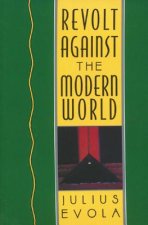
Revolt Against the Modern World
611 Kč -

Catching Fire
347 Kč -

Exercised
337 Kč -
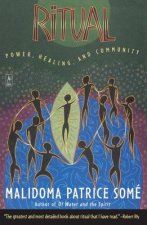
Ritual
280 Kč -

Watching the English
334 Kč -

Harmless People
436 Kč -

Utopia Of Rules
386 Kč -

Nordic Theory of Everything
283 Kč -

Chrysanthemum and the Sword
336 Kč -

Human Diversity
951 Kč -
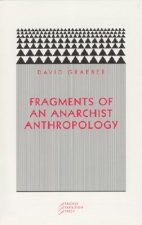
Fragments of an Anarchist Anthropology
330 Kč -

Continuum Concept
323 Kč -

World Until Yesterday
298 Kč -

Spirit Catches You and You Fall Down
392 Kč -
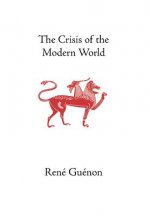
Crisis of the Modern World
717 Kč -

Scientific Study of Mummies
1629 Kč -

Possibilities
483 Kč -

Deep Listeners
845 Kč -
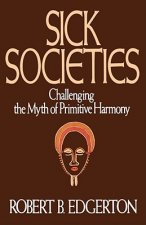
Sick Societies
1059 Kč -

Forms of Talk
875 Kč -
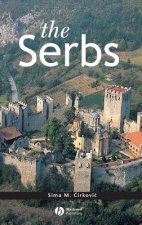
Serbs
1146 Kč -

Bodies under Siege
1131 Kč -

Anarchism
422 Kč -
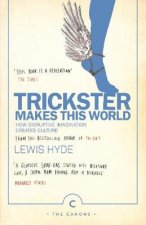
Trickster Makes This World
283 Kč -

Continuum Concept
337 Kč -

Kill All Normies - Online culture wars from 4chan and Tumblr to Trump and the alt-right
313 Kč -
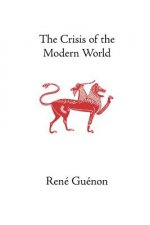
Crisis of the Modern World
426 Kč -

Totem and Taboo
170 Kč -

Combatting Cult Mind Control
509 Kč -

How Forests Think
870 Kč -

Consider The Lobster
298 Kč -

Secret of Our Success
467 Kč -

Protestant Ethic and Other Writings
382 Kč -
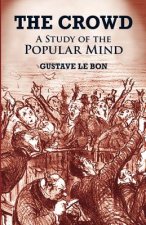
Crowd
266 Kč -

Evolution of the Human Head
1476 Kč -

Limits to Medicine
367 Kč -

Five Roles of a Master Herder
419 Kč -

Cambridge Encyclopedia of Human Evolution
2503 Kč -

Patterning Instinct
487 Kč -
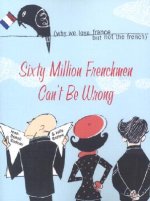
Sixty Million Frenchmen Can't Be Wrong
451 Kč -

Peoplewatching
433 Kč -
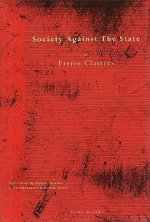
Society Against the State
548 Kč -

Ayahuasca Visions
814 Kč -

How Natives Think
555 Kč -

Bones of Contention
1160 Kč -

Exploration and Discovery - Treasures of the Yale Peabody Museum of Natural History
609 Kč -

Introducing Anthropology
265 Kč -
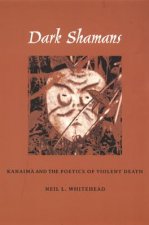
Dark Shamans
881 Kč -

Homo Necans
1014 Kč
Osobní odběr Praha, Brno a 12903 dalších
Copyright ©2008-24 nejlevnejsi-knihy.cz Všechna práva vyhrazenaSoukromíCookies



 Vrácení do měsíce
Vrácení do měsíce 571 999 099 (8-15.30h)
571 999 099 (8-15.30h)